TECHNIA Simulation Tutorials
These tutorials are exclusively available to TECHNIA simulation customers.
If you're not a TECHNIA simulation customer, you will have access to Abaqus tutorials 1 and 2 only.
Download your tutorials
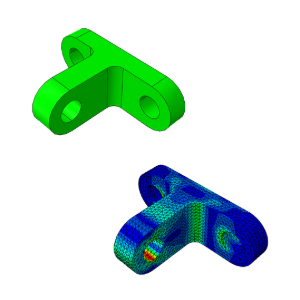
Abaqus Tutorial 1 (Basic): Simple Bracket
Learn how to test and simulate a simple bracket in Abaqus in this step-by-step Abaqus tutorial.
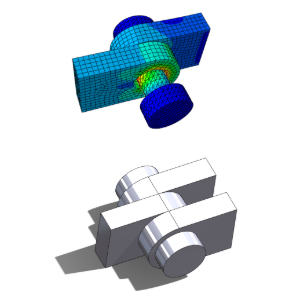
Abaqus Tutorial 2: Basic Pin & Lug
In this tutorial, you will learn how to assemble a Pin/Lug.
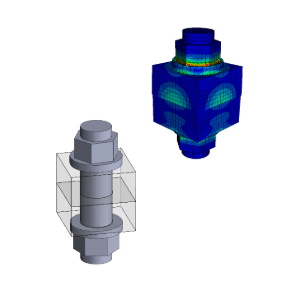
Abaqus Tutorial 3: Bolts
In this tutorial, you will learn about Pre-tensioned Bolts. In Abaqus, bolts use a solid representation rather than the hybrid approach adopted by SOLIDWORKS.
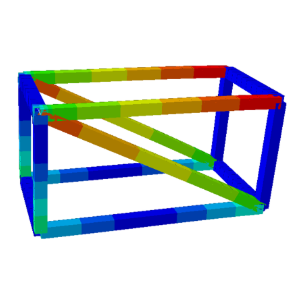
Abaqus Tutorial 4: Basic Beam Elements
In this Abaqus tutorial, the user builds a framework model using a 3D wireframe read in from a CAD system.
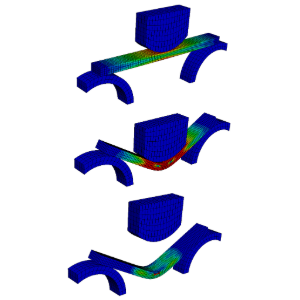
Abaqus Tutorial 5: Plastic Deformation
In this Abaqus tutorial, we look at simple plastic deformation with unloading.
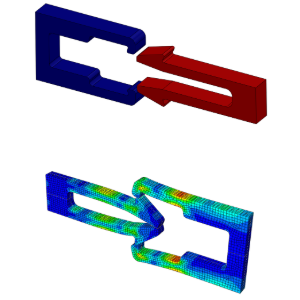
Abaqus Tutorial 7: Snap Fit
In Abaqus Tutorial 7, the focus is around Snap-fit using the Explicit solver. Snap-fit can get tricky as there are issues with stability, sudden changes to geometry and the contact can cause problems as well.
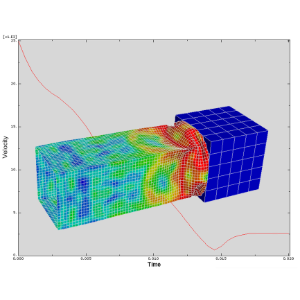
Abaqus Tutorial 8: Crash Box
This Abaqus Tutorial starts to look at slightly more complicated areas of simulation. In this guide, you will learn about: 'Crash - Explicit solution of an impact problem'.
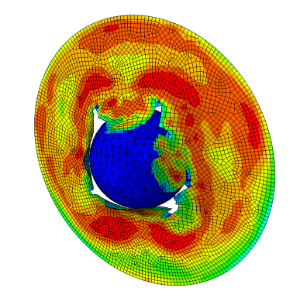
Abaqus Tutorial 9: Ball Plate Impact
This Tutorial covers a basic example of a ball being fired at an aluminum plate.
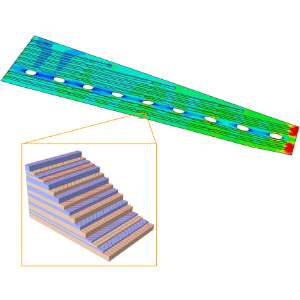
Abaqus Tutorial 10: Composites
In this tutorial, you will modify a structural model of an aircraft wing to define the material properties and the stacking sequence of the laminated structures.
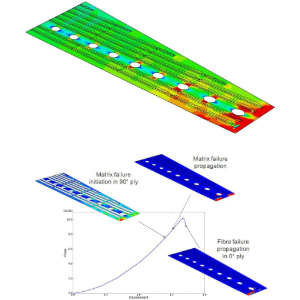
Abaqus Tutorial 11a: Ply Failure
In this tutorial, you will modify a structural model of a wing panel to define the material properties including the ply failure parameters.
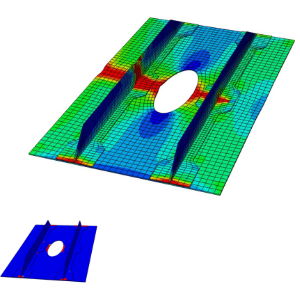
Abaqus Tutorial 11b: Ply Failure
In this tutorial, you will modify a structural model of a stiffened panel to define the material properties including the ply failure parameters.
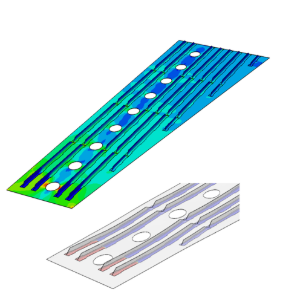
Abaqus Tutorial 12: Bond Failure with VCCT
In this tutorial, you will model the failure of a bond with the Virtual Crack Closure Technique (VCCT).
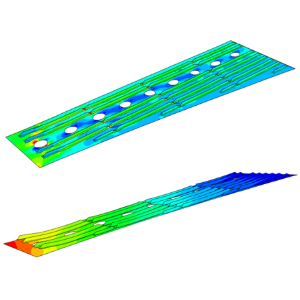
Abaqus Tutorial 13: Bond Failure with Cohesive Contact
In this tutorial, you will model the failure of a bond with a cohesive approach.
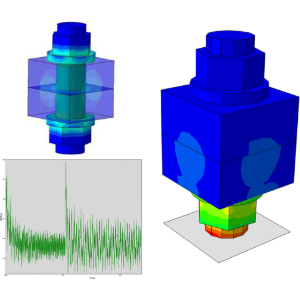
Abaqus Tutorial 14: Importing Implicit Into Explicit
The Abaqus Tutorial 14 guides you through Importing implicit into explicit. This tutorial will cover an example with a pre-tensioned bolt imported to a impact drop.
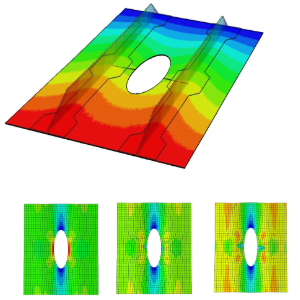
Abaqus Tutorial 15a:
Ply Failure with XFEM
In this tutorial, you will modify a structural model of a stiffened panel to define the material properties including the ply failure parameters and create X-FEM domains.
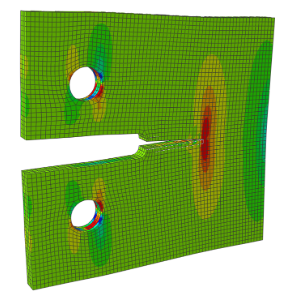
Abaqus Tutorial 15b: XFEM, Modeling Crack Propagation
In this tutorial, you will modify a model of a compact tension (CT) test to define the material properties, including a pre-existing crack and create X-FEM domains.
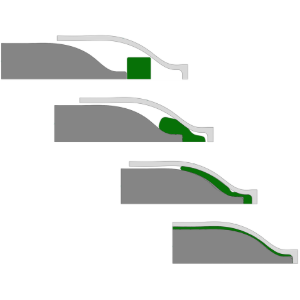
Abaqus Tutorial 16: CEL, molding of a polymetric bottle
In this tutorial, you will setup a Coupled Eulerian-Lagrangian (CEL) model of the molding process of a polymeric bottle.
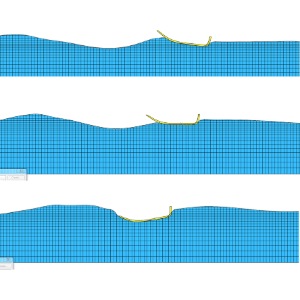
Abaqus Tutorial 17: CEL Model
In this tutorial, you will create a CEL model of a boat floating on a wavy sea. A rigid gate will be put in contact with the water and used to create waves.
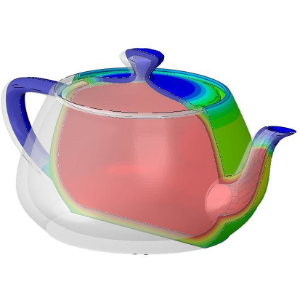
Abaqus Tutorial 18: Heat transfer Analysis
In this tutorial, you will create a pure heat transfer model of a hot teapot. Two simulations will be implemented to compare the temperature fields obtained using a steel or a porcelain teapot.
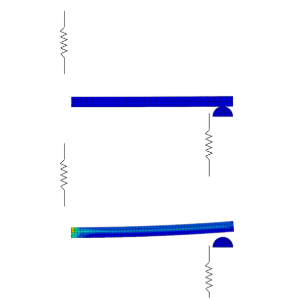
Abaqus Tutorial 19: Thermal - Stress Analysis
In this tutorial, you will create a coupled thermal-stress simulation of a bimetallic thermostat in which temperature field and displacement are solved together.
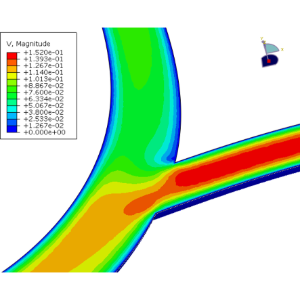
Abaqus Tutorial 20: Pulsating flow in a bifurcated vessel
In this tutorial, you will create a transient fluid dynamic analysis of a bifurcated artery with Abaqus/CFD.
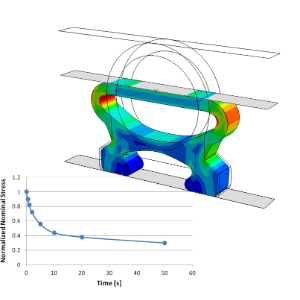
Abaqus Tutorial 21: Compression & Stress Relaxation of a Viscoelastic Rubber Seal
In this tutorial, you will investigate the time-dependent viscoelastic behaviour of a rubber seal after compression.
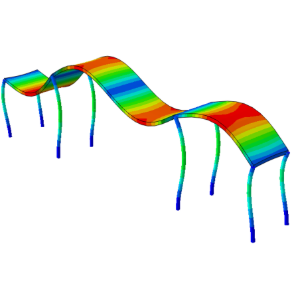
Abaqus Tutorial 22:
Natural Frequency Extraction of a Bridge
In this tutorial, you will perform a linear dynamic analysis to extract the natural frequencies of a steel bridge.
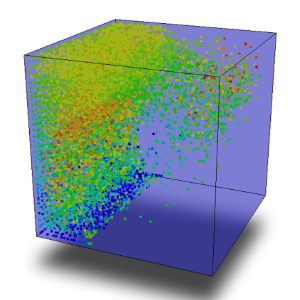
Abaqus Tutorial 23:
Sloshing in a tank modeled using SPH as an example
This tutorial gives a basic introduction to SPH modeling in Abaqus CAE. The tutorial will take you through a basic model of g forces acting on a fluid in a typical tank.
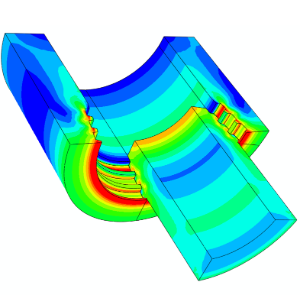
Abaqus Tutorial 24: Threaded connector & pressure penetration
This tutorial explains how to use a bolt load and assessment of a connection by means of pressure penetration interaction. This tutorial is specially interesting for the offshore / oil & gas industry.
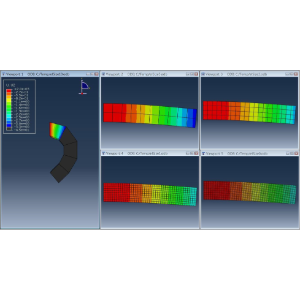
Abaqus Tutorial 25: Setting up a python script to create and run different versions of a model
In this tutorial, you will create a model of a bending beam using Abaqus/CAE and subsequently create a macro and a python script.
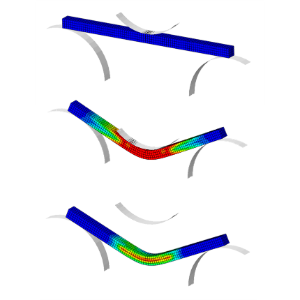
Abaqus tutorial 26: Three point bending
In this tutorial, you will be shown examples which demonstrates high quality contact simulation.
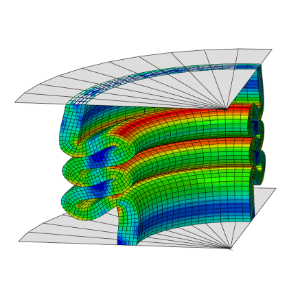
Abaqus tutorial 27: Rubber seal
This tutorial will show you the capability of Abaqus to solve for contact where an instance gets in contact with itself.
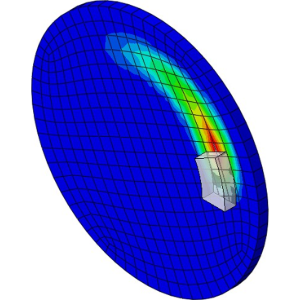
Abaqus tutorial 28:
Disk brake: define and investigate friction coefficients
This exercise will show you how to include friction as interaction property and how to investigate its effects for a disk brake system.
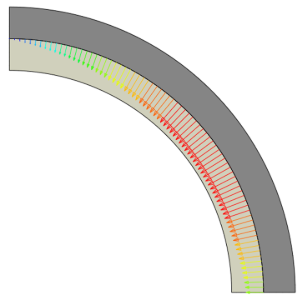
Abaqus tutorial 29: Managing overclosures: interference-fit, strain-free adjust
In this tutorial, you will learn how to treat overclosures with a contact pair approach. Two simulations will be carried out: one treating the overclosure as interference fit, the other using a strain-free adjustment.
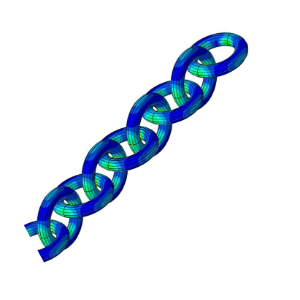
Abaqus tutorial 30: Geometric smoothing, contact stabilization
This exercise is intended to show two useful Abaqus capabilities related to contact handling: geometric surface smoothing and contact stabilization.
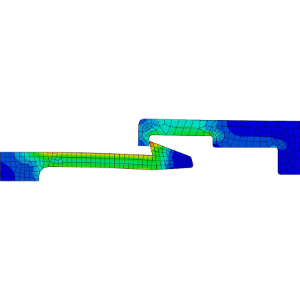
Abaqus tutorial 31: Snap fit simulation: dynamic instabilities
In this exercise a snap fit simulation is implemented. During a snap-fit, the static problem becomes dynamic in nature due to sudden contact loss.
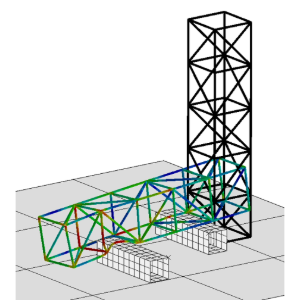
Abaqus tutorial 32:
Tower fall: beam contact
This exercise involves the use of beam elements to model a tower falling. Contact with two objects on the floor will deform the tower.
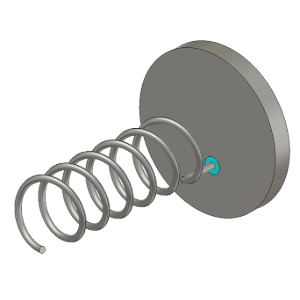
CST Tutorial 1: Triple Feed Patch Antenna
In this tutorial you will re-create the Helix antenna from the CST Component Library. The CST component library contains hundreds of ready-to-simulate examples to provide guidance on how to simulate different types of projects.
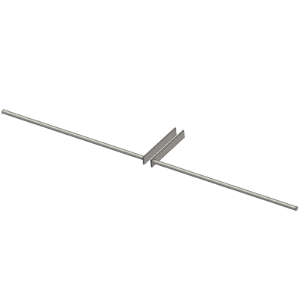
CST Tutorial 2: Dipole Antenna
In this tutorial you will re-create the Dipole antenna from the CST Demo Example Macro.
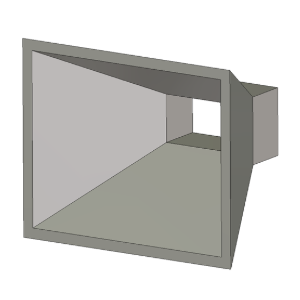
CST Tutorial 3: Horn Antenna
In this tutorial you will use the Horn antenna from the CST Demo Example Macro.
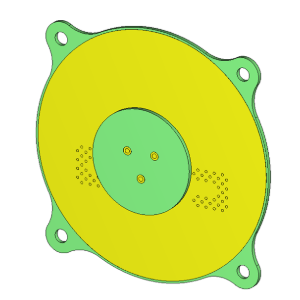
CST Tutorial 4: Triple Feed Patch Antenna
In this tutorial we will model the Triple Feed Patch Antenna, designed by Maarten Baert and Robin Theunis, licensed under Creative Commons Attribution-ShareAlike 4.0 International License.
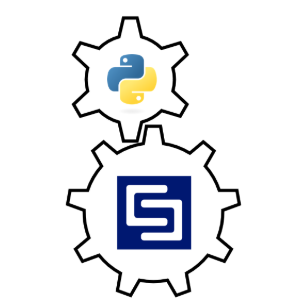
CST Tutorial 5a-5c: Python
These tutorials offer a quick start guide to using Python with CST Studio Suite.